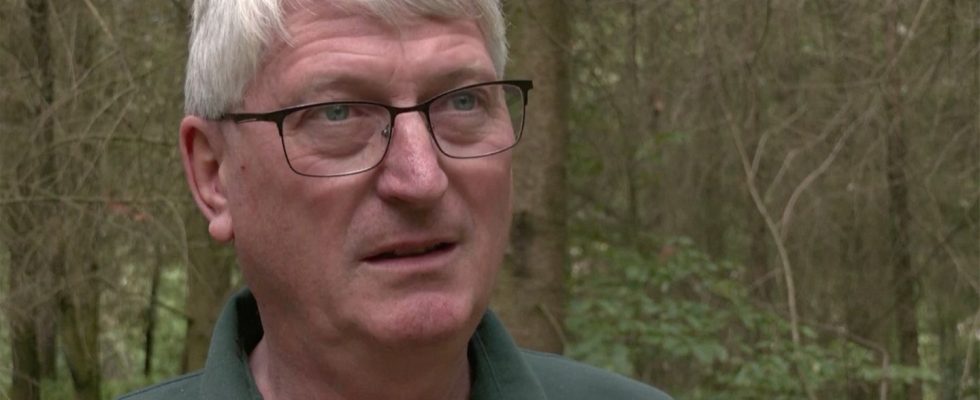Watch the video: Förster raises the alarm – “Pictures like this make you sad”.
When district forester Ralf Jäkel walks through the woods near Reiskirchen, a municipality around 70 kilometers north of Frankfurt, he sometimes gets in a bad mood. The 63-year-old has worked as a forester for the state of Hesse for more than half of his life. The forest is a real affair of the heart for him. But the drought and high temperatures of the past few years have made life difficult for him and his colleagues. “In recent years we have replaced many of the risky tree species in the risky locations, with a focus on spruce. We have stabilized the stocks with substructure measures. We have brought deciduous wood to where the spruce has disappeared. We believe that we are building a stable, future-oriented forest. We still believe that. But it’s getting harder and harder. And pictures like this one make you sad. They really take away the motivation.” According to the federal government’s forest condition report, the forest has not been able to recover after years of drought. And there are always setbacks when trying to make the forests more resistant to heat and drought. In a clearing, Jäkel shows young trees that are now dead behind the wooden slats that were once supposed to protect them from deer. “These trees have simply dried up, even though we had a March this spring that was the rainiest in decades.” Only healthy forests store carbon and act as our natural air conditioners. That means mixed forest instead of monocultures. This year, two million new trees have already been planted in the Hessian forests alone. “We have to experiment here and there. We have to try it out, if we have a Mediterranean climate, whether Mediterranean species or Eastern European species, which are much better adapted to hot summers and cold winters, whether we can’t cope better with them on some areas. In principle, we want to promote the native tree species and challenge us to bring them everywhere we can. But we probably won’t be able to do enough with that.” Jäkel and his colleagues are responsible for around 14,000 hectares of forest. Despite the difficulties, they don’t want to give up and try to make the forest so healthy that you can walk through it in a good mood again.

